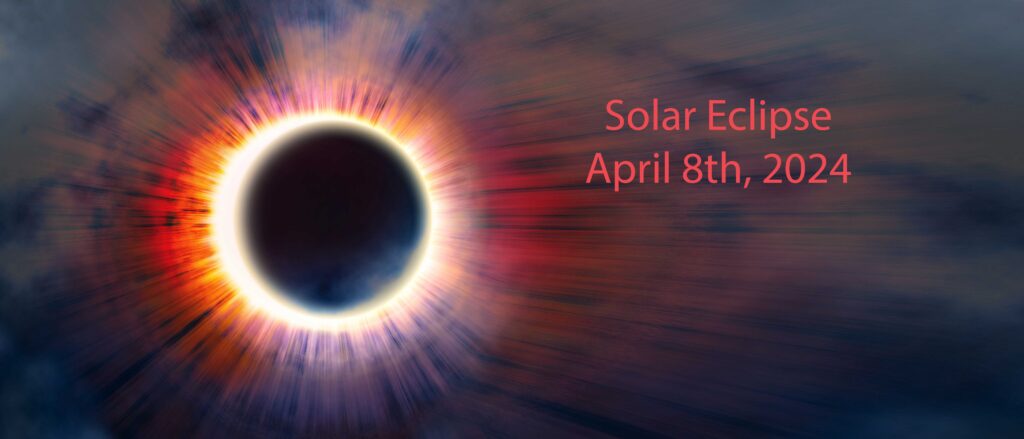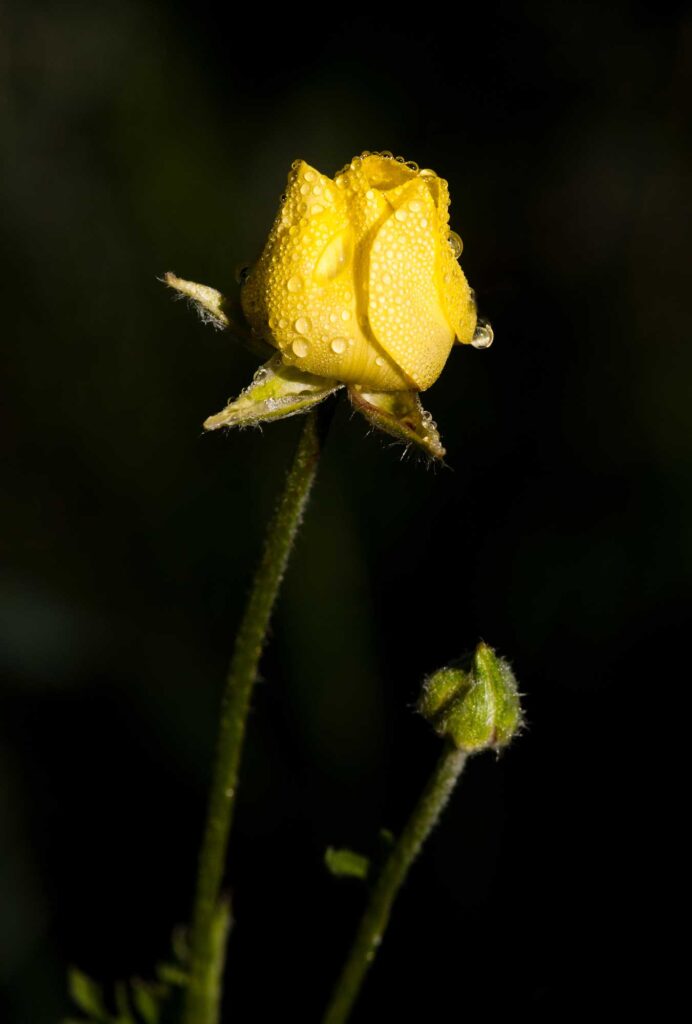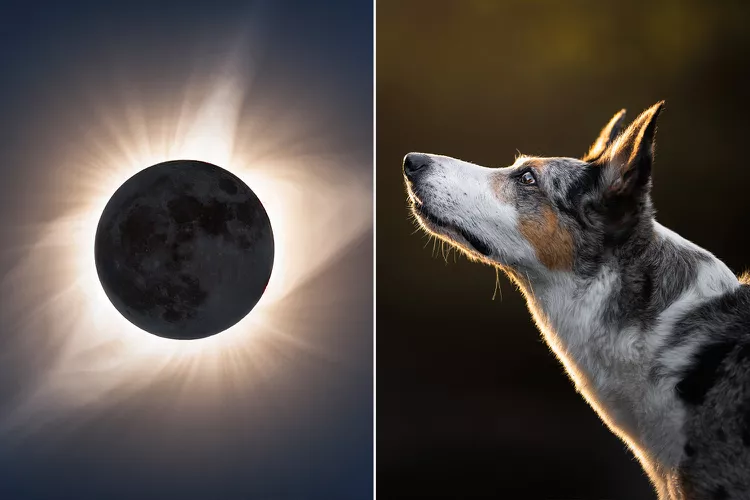During a solar eclipse, plants and animals exhibit interesting behaviors in response to sudden changes in light and temperature.

Plant and Animal Behavior
Some plants, such as those that track the sun’s movement throughout the day, temporarily close their leaves or flowers during a solar eclipse, mistaking the darkness for the night.
Additionally, some studies suggest that plants reduce their photosynthetic activity during an eclipse due to the decrease in sunlight.

When Day Becomes Night

Wolves howl for various reasons, such as to communicate with other members of their pack, to establish territory, or to locate other wolves.
During a solar eclipse, animals may exhibit various behaviors in response to the sudden changes in light and temperature. Some animals may become more active, thinking that night is falling. Others may become more quiet, confused by the unusual dimming of the sun.
Birds Stop Singing?
Nocturnal animals that are normally active at night might become active during the eclipse. Birds may stop singing, and some animals may exhibit signs of confusion or alarm.
We will not see another solar eclipse in the US for 20 years. Don’t miss the magesty of the Solar Eclipse April 8th, 2024!
It’s crucial to protect your eyes during a solar eclipse.
It’s crucial to protect your eyes during a solar eclipse. Looking directly at the sun, even during an eclipse, can cause serious eye damage or even blindness. If you don’t have special eclipse glasses, there are safe ways to view the eclipse indirectly, such as using a pinhole projector or watching the eclipse’s projection through a telescope or binoculars onto a piece of paper. Never look directly at the sun without proper eye protection during a solar eclipse.
Check out Our Early Spring Local Farm and Business Products:
-
Premium Seasoned Firewood
Original price was: $30.00.$27.00Current price is: $27.00.






